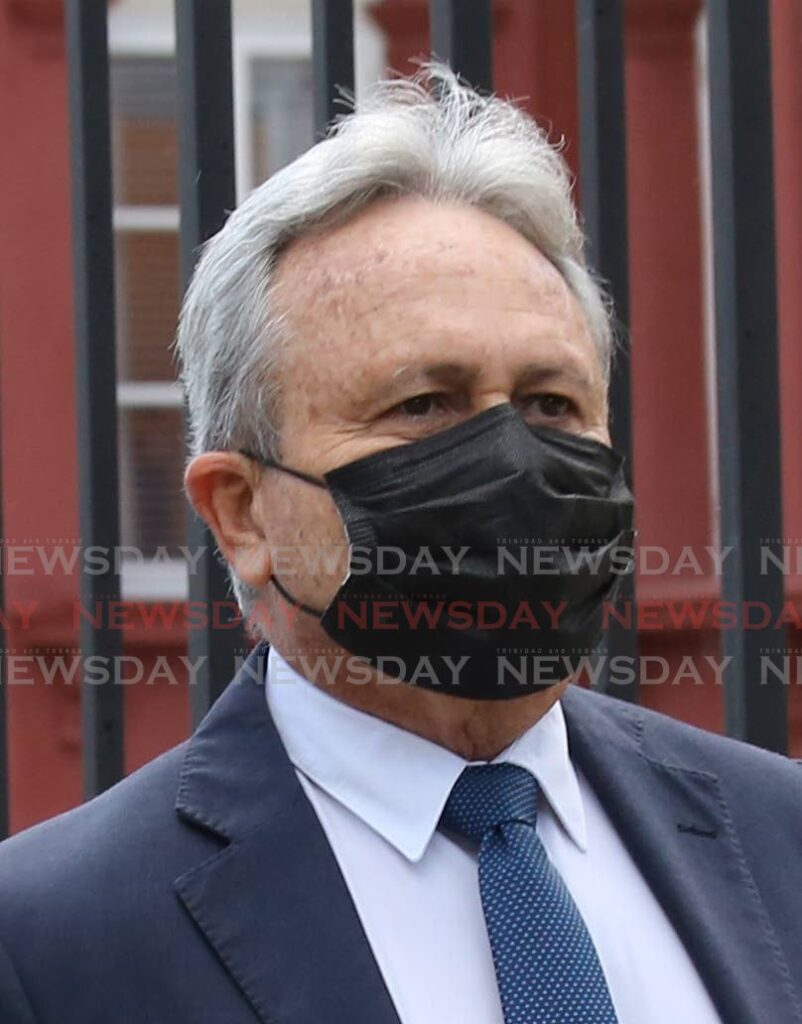Imbert defends budget oil, gas prices

FINANCE Minister Colm Imbert has defended Government's decision to peg the 2022/2023 budget on oil and natural gas prices of US$92.50 per barrel and US$6 per mmbtu.
He did so when he opened the budget debate in the Senate on Wednesday.
The House of Representatives passed the budget on Wednesday with 21 government MPs voting for it and 19 opposition MPs voting against it.
Imbert observed that since he presented the budget in the House on September 26, some people had questioned the oil and natural gas prices it was pegged against.
Referring to data on local oil and gas prices between January and August that he requested from the Energy Ministry, Imbert said, "We get crude from all sorts of sources."
These include Galeota oil, which Imbert described as TT's most valuable local crude oil.
"We get the highest price for that, and different crudes attract different prices."
He said the average weighted local crude price in January was US$82.73 per barrel. This increased to US$92.57 per barrel in February and in March to US$109.96 per barrel.
The price declined in April to US$104.52 per barrel and then increased in May to US$109.55 per barrel.
In June, it was US$117.80 per barrel. In July and August, the oil prices were US$101.35 and US$96.60 per barrel respectively.
Imbert said the average from January-August was US$102.06 per barrel.
Over this period, he said, West Texas Intermediate (WTI) crude oil sold at US$100.38 per barrel and Brent crude oil at US$104.01 per barrel.
"Our local crude (oil) on average fetched about $2 below the price of Brent and about $2 above the price of WTI."
For benchmarking purposes, Imbert said it was safe to take an average between WTI and Brent crude oils "in terms of forecasting."
In terms of gas, Imbert said that price in January was US$5.86 per mmbtu. This increased to US$7.29 per mmbtu in February and stayed at that price in March. The price increased in April to US$8.41 per mmbtu, then declined in May to US$6.70.
In June, the price declined to US$5.88 per mmbtu. It increased to US$6.45 in July. and further increased to US$7.40 in August.
The average gas price between January and August was US$6.85 per mmbtu.
Imbert said, "These numbers are important because the 2022 budget was predicated on a oil price of US$65 per barrel and a gas price of US$3.75 per mmbtu."
Comparing this to the average oil and gas prices between January and August, Imbert said the former was US$35 more than the 2021/2022 budget's pegged oil price and US$3 more than that budget's pegged gas price
He added that the world gas price is currently US$6.66 per mmbtu, Brent is selling at US$93 per barrel and almost reached US$99 per barrel earlier in the week.
"There is extreme volatility in oil and gas prices, more so in oil than in gas. Gas has been fairly stable for the last several months, at somewhere between US$6 and $7 per mmbtu."
Against this background, Imbert said Government is confident that the oil and gas prices against which it pegged the budget were good.
To those who described these figures as bad estimates, Imbert said, "I would suggest that you do a little more research."
He also said Government consulted the US Energy Information Association (USEIA), International Monetary Fund (IMF), World Bank, Standard & Poors and Fitch on projected oil and gas prices.
"The consensus at the time, and it still is, is that the forecast for oil in 2023 is US$95 per barrel."
Imbert was confident that the budget's pegged oil and gas prices were on target.
"Since we get two-thirds of our revenue from gas and one-third from oil, I think our revenue estimates are well calculated."
The budget's estimated revenue is $56.175 billion.


Comments
"Imbert defends budget oil, gas prices"